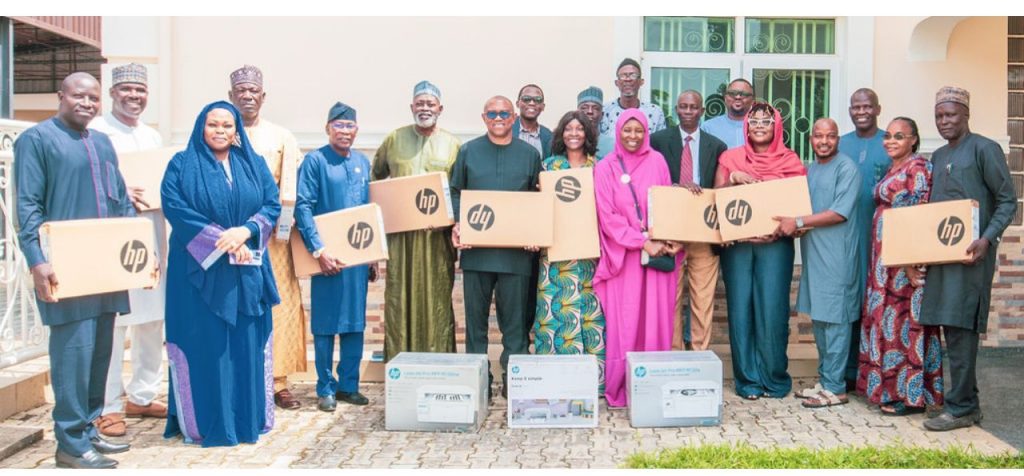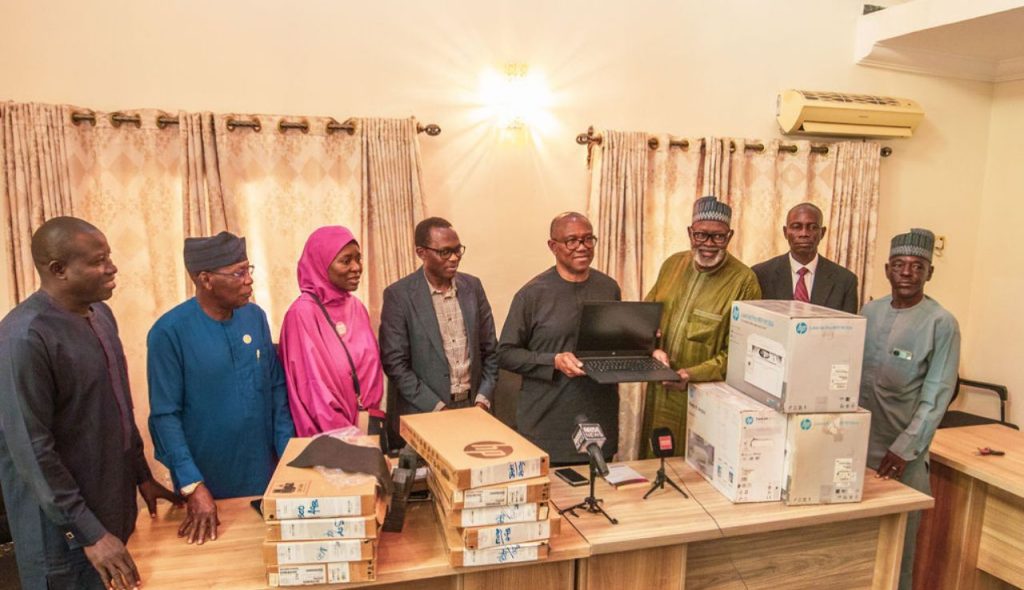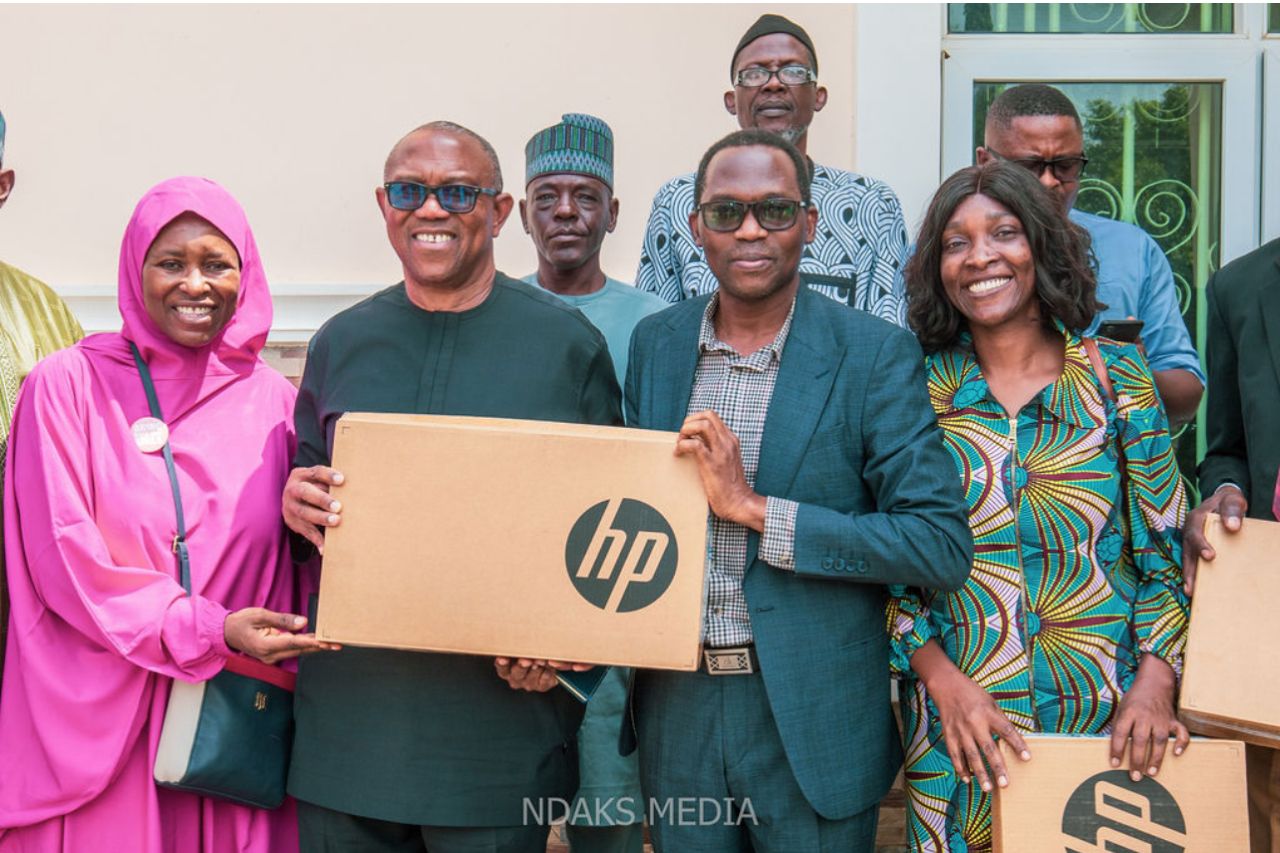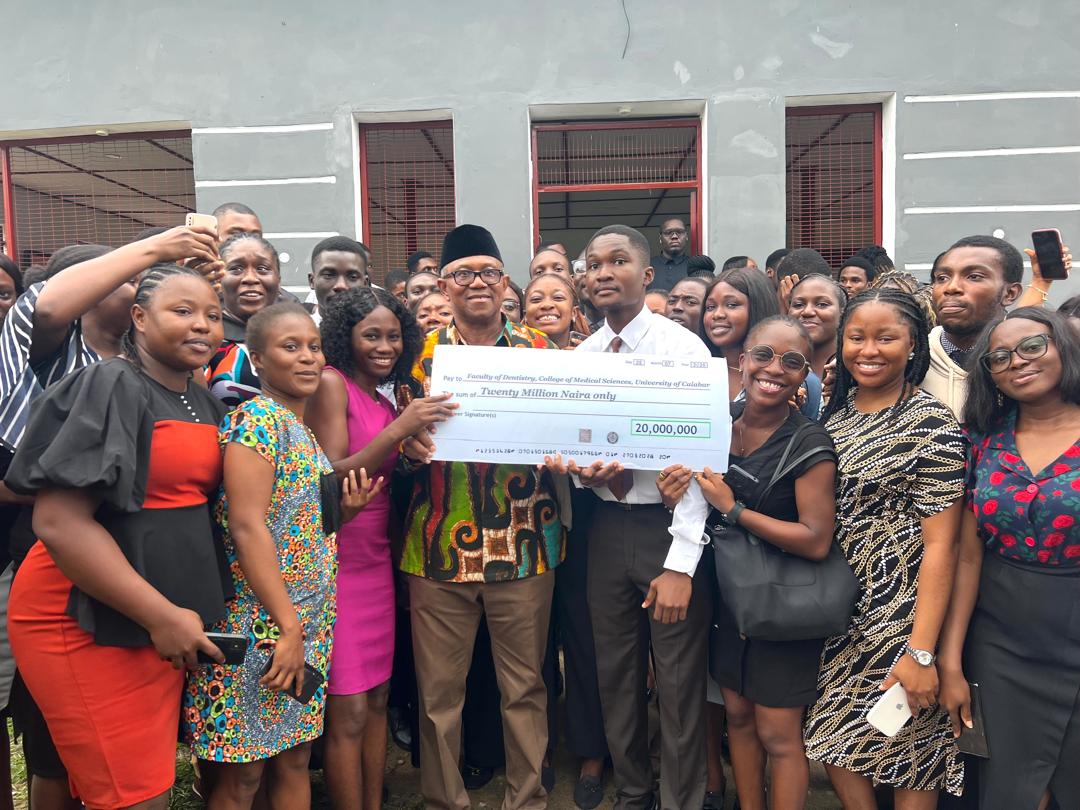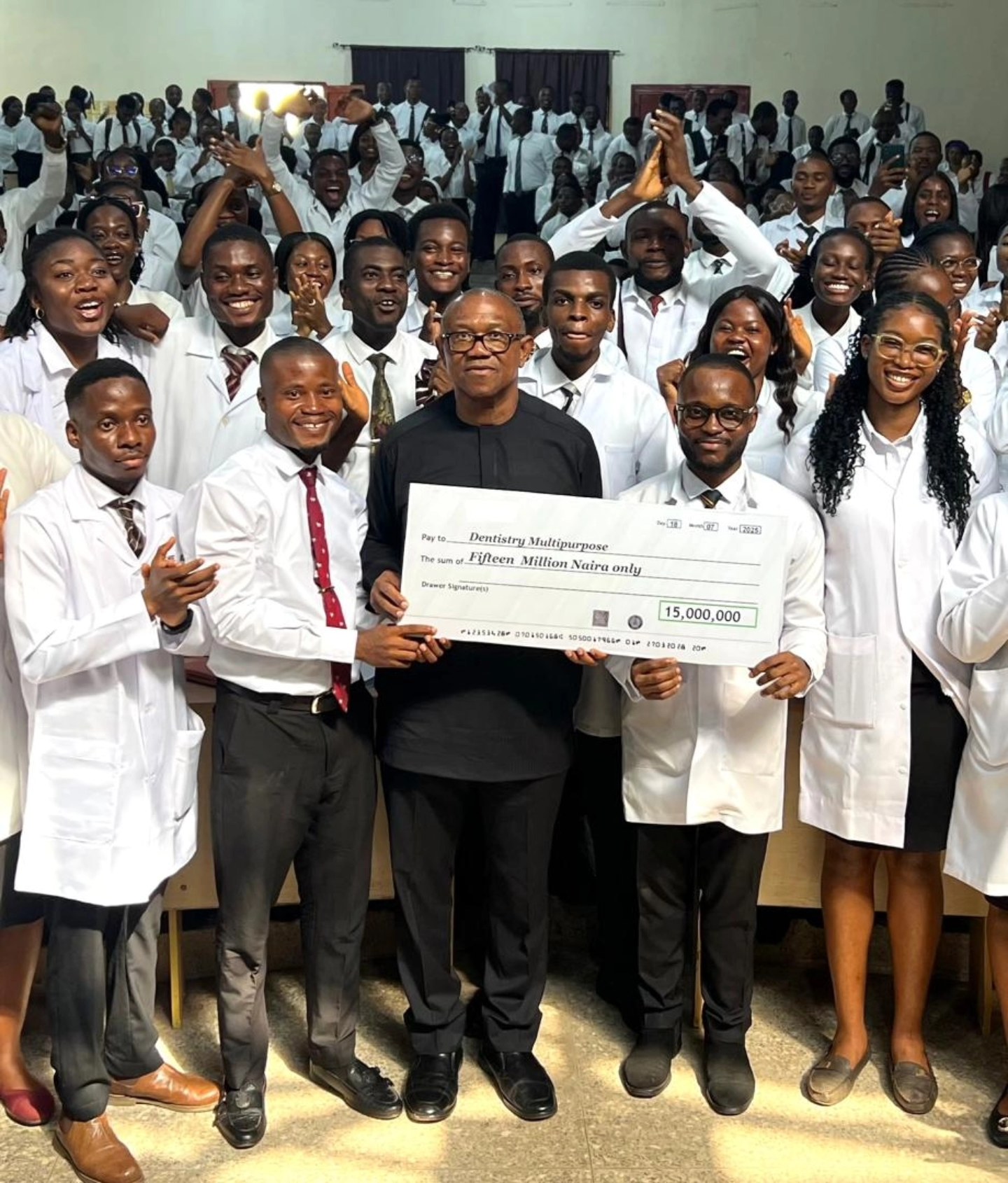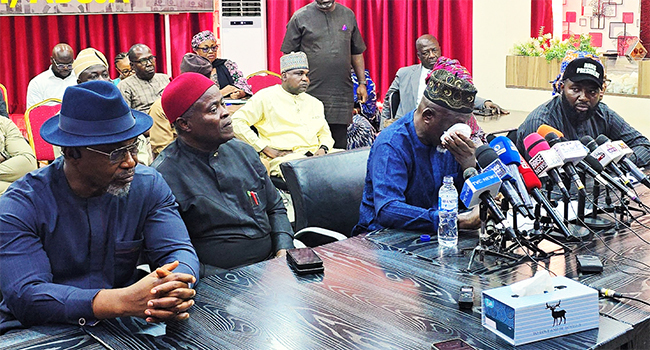Abuja, Nigeria – Peter Obi, former Governor of Anambra State, has taken action to address the dire state of education in Chibok, Borno State, where a secondary school, infamous for the 2014 Boko Haram kidnapping of over 200 schoolgirls, lacks basic facilities. Obi’s intervention follows a call from activist Aisha Yesufu, who informed him that the school, with over 2,500 students, had only one desktop computer, no functional laboratories, and no electricity.
Yesufu urged Obi to provide two additional computers and install solar lighting for the computer classroom. Unable to visit Chibok due to security concerns, Obi met with community leaders in Abuja, where he donated 10 laptops, three printers, and ₦6 million to fund a laboratory, a computer classroom, and a motorised borehole. He described the contribution not as a donation but as “a sincere commitment and a promise to the future of our community.”
Expressing dismay at the neglect of education, Obi questioned Nigeria’s priorities, pointing to the stark contrast between students’ lack of basic resources and the lavish spending by leaders on luxuries like renovated conference centres and international-standard lodges. “One wonders why we live in a nation where our students don’t have labs, books, or even pencils, while our leaders live in opulence,” he said.
Obi called for urgent self-examination and a focus on critical development areas, including education, healthcare, and poverty alleviation. He pledged to continue supporting Chibok’s school, underscoring the need for systemic change to address the rising costs of misgovernance.
The Chibok school remains a symbol of Nigeria’s challenges, with 70 of the kidnapped girls still unaccounted for. Obi’s actions highlight the ongoing struggle to provide adequate education in the face of insecurity and resource scarcity.
Subscribe to our newsletter!

